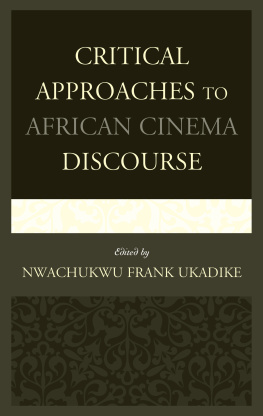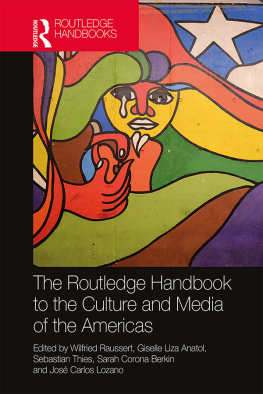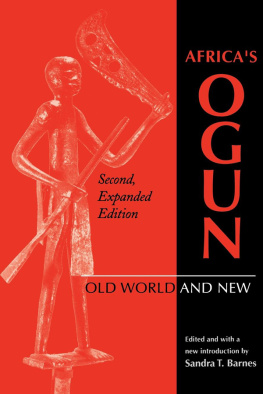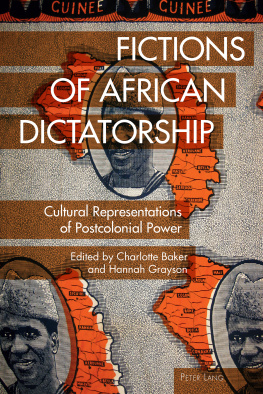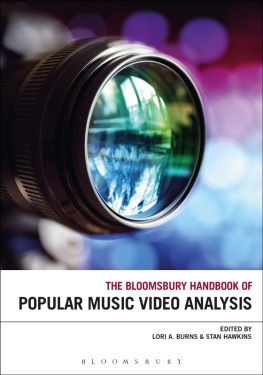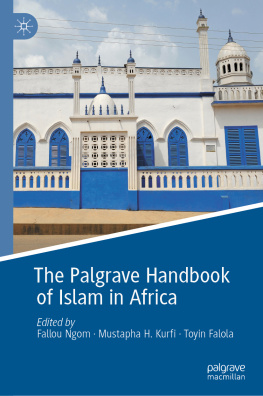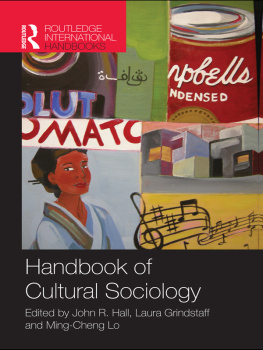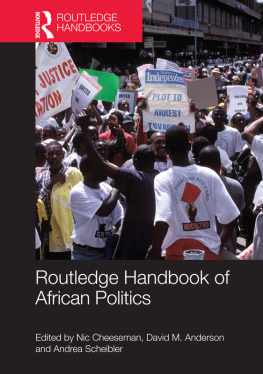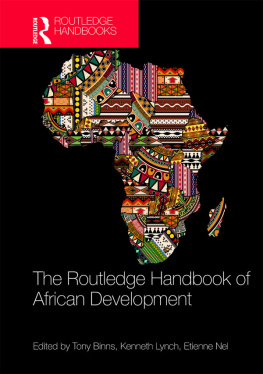
ROUTLEDGE HANDBOOK OF AFRICAN POPULAR CULTURE
This handbook brings together an international team of scholars from different disciplines to reflect on African popular cultural imaginaries. These imaginaries in the sense of cultural productions, contexts, consumers, producers, platforms, and the material, affective and discursive resources they circulate are influential in shaping African realities. Collectively, the chapters assembled in this handbook index the genres, methods, mediums, questions and encounters that preoccupy producers, consumers and scholars of African popular cultural forms across a range of geohistorical and temporal contexts.
Drawing on forms such as newspaper columns, televised English Premier League football, speculative arts, romance fiction, comedy, cinema, music and digital genres, the contributors explore the possibilities and ambiguities unleashed by the production, circulation, consumption, remediation and critique of these forms. Among the questions explored across these essays are the freedoms and constraints of popular genres; the forms of self-making, pleasure and harm that these imaginaries enable; the negotiations of multiple moral regimes in everyday life; and, inevitably, the fecund terrain of contradictions definitive of many popular forms, which variously enable and undermine world-making.
An authoritative scholarly resource on popular culture in Africa, this handbook is an essential read for students and scholars of African culture, society and media.
Grace A Musila teaches African literature at the University of the Witwatersrand. She is editor of Wangari Maathais Registers of Freedom (2020); author of A Death Retold in Truth and Rumour: Kenya, Britain and the Julie Ward Murder (2015); and co-editor of Rethinking Eastern African Intellectual Landscapes (2012, with James Ogude and Dina Ligaga).
ROUTLEDGE HANDBOOK
OF AFRICAN POPULAR
CULTURE
Edited by Grace A Musila
Foreword by Karin Barber

Cover image: Hand-painted beauty Salon Sign by Heavy J. Commissioned and Photographed by Joseph Oduro-Frimpong, Ashesi University
First published 2022
by Routledge
4 Park Square, Milton Park, Abingdon, Oxon OX14 4RN
and by Routledge
605 Third Avenue, New York, NY 10158
Routledge is an imprint of the Taylor & Francis Group, an informa business
2022 selection and editorial matter, Grace A Musila; individual chapters, the contributors
The right of Grace A Musila to be identified as the author of the editorial material, and of the authors for their individual chapters, has been asserted in accordance with sections 77 and 78 of the Copyright, Designs and Patents Act 1988.
With the exception of , no part of this book may be reprinted or reproduced or utilised in any form or by any electronic, mechanical, or other means, now known or hereafter invented, including photocopying and recording, or in any information storage or retrieval system, without permission in writing from the publishers.
Chapter 12 of this book is available for free in PDF format as Open Access from the individual product page at www.routledge.com. It has been made available under a Creative Commons Attribution-Non Commercial-No Derivatives 4.0 license.
Trademark notice: Product or corporate names may be trademarks or registered trademarks, and are used only for identification and explanation without intent to infringe.
British Library Cataloguing-in-Publication Data
A catalogue record for this book is available from the British Library
Library of Congress Cataloging-in-Publication Data
Names: Musila, Grace A., editor.
Title: Routledge handbook of African popular culture / edited by Grace A Musila ; foreword by Karin Barber.
Description: New York : Routledge, 2022. | Includes bibliographical references and index.
Identifiers: LCCN 2021057258 (print) | LCCN 2021057259 (ebook) | ISBN 9780367483869 (hardback) | ISBN 9780367532000 (paperback) | ISBN 9781003080855 (ebook)
Subjects: LCSH: Popular cultureAfrica.
Classification: LCC DT14 .R68 2022 (print) | LCC DT14 (ebook) | DDC 306.096dc23
LC record available at https://lccn.loc.gov/2021057258
LC ebook record available at https://lccn.loc.gov/2021057259
ISBN: 978-0-367-48386-9 (hbk)
ISBN: 978-0-367-53200-0 (pbk)
ISBN: 978-1-003-08085-5 (ebk)
DOI: 10.4324/9781003080855
Typeset in Bembo
by Apex CoVantage, LLC
Access the Support Material: www.routledge.com/9780367483869
To Bhekizizwe Peterson (aka Prof)
For friendship, integrity and faith.
For seeing us as we could be.
CONTENTS
by Karin Barber
Grace A Musila
Corinne Sandwith
Stephanie Newell
Susanne Gehrmann
Ranka Primorac
Lynda Gichanda Spencer and Erik Falk
Doseline Kiguru
Steven Almquist
Adwoa Opoku-Agyemang and Kwabena Opoku-Agyemang
Nedine Moonsamy
Maline Le Lay
Nikitta Dede Adjirakor
Aulika Agina
Alessandro Jedlowski
Solomon Waliaula
Dina Ligaga
Ryan Poinasamy
Katrien Pype
Rangoato Hlasane and Bhekizizwe Peterson
David Kerr
Femi Eromosele
James Yk
Rotimi Fasan
Joseph Oduro-Frimpong
Guide
FIGURES
CONTRIBUTORS
Nikitta Dede Adjirakor is a postdoctoral researcher in literatures in African languages at the University of Bayreuth, Germany. Her research and teaching interests are in African popular cultural practices and poetics with particular emphasis on aesthetics, hip-hop, poetry, materiality and digital practices. Her current research explores digital literature in African languages within world literature with a focus on East and West Africa.
Aulika Agina is a postdoctoral research fellow on an European Research Council-funded project African Screen Worlds: Decolonising Film and Screen Studies based at SOAS University of London. She researches the Nigerian film industry, film and social change as well as historical and contemporary cinema audiences. She is also a senior lecturer at the Pan-Atlantic University, Lagos, where she teaches courses on media, culture and society. She is currently co-editing a book on African screen worlds.
Steven Almquist is a professor of English at Spring Hill College in Mobile, Alabama. His teaching and research interests include global postcolonial literature, gender and literary representation, and African diasporic culture and literature.
Femi Eromosele is a postdoctoral fellow at the Centre for the Advancement of Scholarship, University of Pretoria. His research is largely situated at the intersection of literature and discourses of illness and health. He is also interested in African popular culture, especially the music video. His publications have appeared in Social Dynamics, Journal of African Cultural Studies, Journal of Postcolonial Writing, and other platforms.
Erik Falk was senior researcher at the Nordic Africa Institute and is currently External Relations Officer at Sdertrn University, both in Sweden. His research is on African and Caribbean postcolonial literature and world literature with a focus on book markets and the circulation of literature.
Rotimi Fasan is a professor and the Dean of the Faculty of Humanities of the College of Humanities and Culture, Osun State University, Osogbo, Nigeria. He has been head of the Department of Languages and Linguistics (incorporating English and International studies, French and International studies, Linguistics and Communication studies). He has also been the head of the Department of English and Literary Studies where he teaches courses in African and world literatures. His research straddles literary and cultural studies, including print, popular, and expressive cultures. His journalism that appears in his Talking Point weekly column in Vanguard Media, Lagos, focuses on political and socio-economic commentary.
Next page


